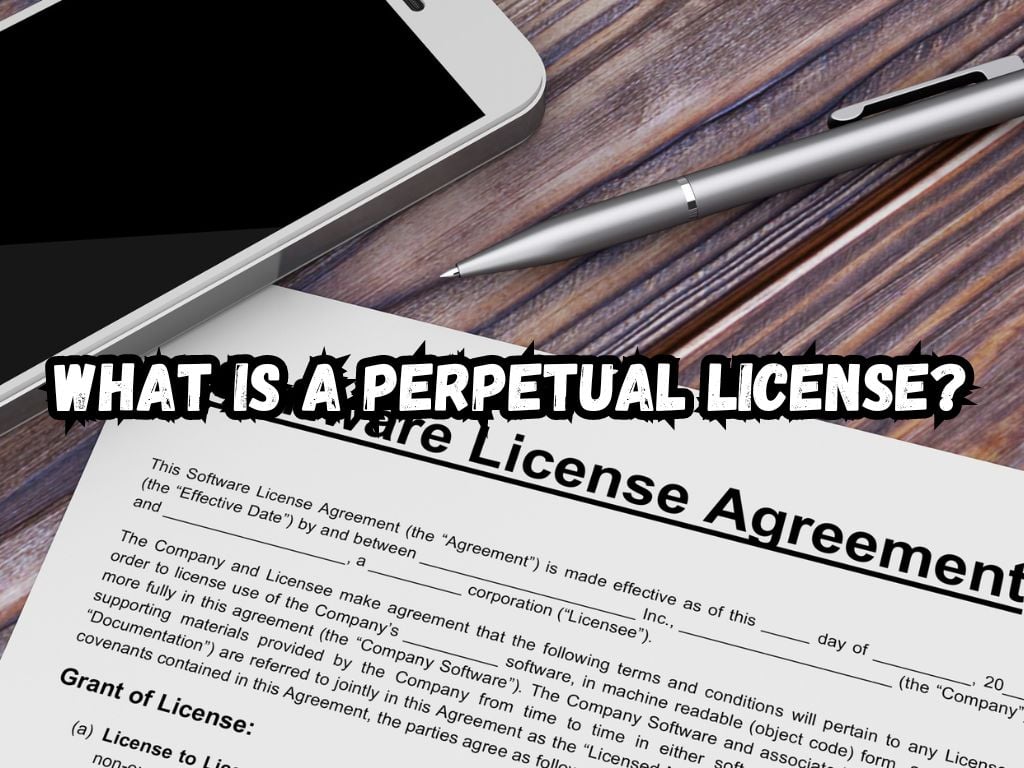In the evolving digital world, understanding different software licensing models is more important than ever. Among these models, the concept of a perpetual license stands out for offering a distinct approach to software ownership.
This article aims to demystify what is a perpetual license, delve into its pros and cons, and guide both individuals and businesses in making informed decisions.
What Is a Perpetual License?
Definition
A perpetual license allows users to pay a one-time fee to use software indefinitely. Unlike subscription-based models that require ongoing payments, perpetual licenses do not expire. This fundamental difference sets it apart, offering an alternative to the increasingly popular subscription or freemium models.
Key Characteristics
The core appeal of a perpetual license lies in its permanence. Users make a single investment and enjoy continuous access to the software.
This model contrasts sharply with time-limited licenses that necessitate regular renewals, posing a stark choice between ongoing costs and outright ownership.

Advantages of Perpetual Licenses
Cost-Effectiveness Over Time
One of the most compelling arguments for perpetual licenses is their potential for cost savings in the long run.
While the initial price might be higher than subscription fees, the one-off payment often proves more economical over time, especially for software essential to daily operations.
Software Ownership
Perpetual licenses offer users a sense of ownership. This contrasts with subscription services, where users effectively rent the software. Owning a license can provide psychological assurance and financial predictability.
Predictability and Stability
Budget predictability is another significant advantage. Once purchased, a perpetual license eliminates the worry of subscription price hikes. This stability is particularly valuable for businesses planning long-term investments.
Disadvantages of Perpetual Licenses
Initial Upfront Cost
The higher initial investment can be a deterrent. For small businesses or individuals on tight budgets, the upfront cost of a perpetual license might be challenging to justify, especially when subscription models offer lower starting prices.
Updates and Support
Perpetual licenses often come with limitations on free updates and support. While the software remains usable, access to the latest features or security patches may require additional investment in maintenance contracts.
Flexibility and Scalability
Changing needs pose a challenge for perpetual licenses. Scaling up or adjusting software capabilities can be less flexible than with subscription models, potentially leading to higher costs or the need to purchase entirely new licenses.
Considering Your Needs
Individual Users
Individuals should weigh their long-term software usage against the cost. If a piece of software is essential for years to come, a perpetual license might be the smarter financial decision.
However, this requires careful consideration of one’s future needs and budget.
Businesses
For businesses, the decision is more complex. Long-term cost-effectiveness, software scalability, and financial planning are critical factors.
A thorough analysis can reveal whether the predictability and stability of a perpetual license align with a company’s operational needs.
Maintenance and Support for Perpetual Licenses
Maintenance contracts are crucial for accessing ongoing support and updates. These contracts represent an additional cost but are often essential for keeping software secure and functional.
Understanding these terms before purchasing can prevent unexpected expenses down the line.

Compliance and Auditing Issues
Perpetual licenses come with compliance responsibilities. Proper record-keeping and understanding the license terms are vital to avoid legal issues, especially during software audits.
Businesses, in particular, need to be diligent in managing their licenses to ensure compliance.
Future of Perpetual Licenses
The software industry is increasingly leaning towards subscription models. However, the future of perpetual licenses remains relevant for users seeking stability and predictability.
Their viability will largely depend on user demands and the industry’s response to these preferences.
Frequently Asked Questions
Can perpetual licenses be transferred to new users or machines?
Yes, but this depends on the software’s terms and conditions. Some licenses allow transfers, while others do not. Review the license agreement carefully to understand your rights.
How do perpetual licenses differ from open-source licenses?
Perpetual licenses are paid, granting indefinite use of proprietary software. Open-source licenses allow free use, modification, and sharing under certain conditions.
What happens if the company that issued the perpetual license goes out of business?
Generally, you can continue using the software. However, future updates or support will likely be unavailable.
While not hidden, maintenance contracts for updates and support represent an additional cost that users should anticipate.
How can businesses ensure they remain compliant with perpetual license agreements during audits?
Maintaining accurate records of all software purchases and understanding the terms of each license are key strategies for ensuring compliance.
Choosing the right licensing model requires careful consideration of your long-term needs and financial situation. Perpetual licenses offer a unique set of advantages that might make them the perfect fit for some users and businesses.
Conclusion
Perpetual licenses present a compelling option for those looking for long-term software solutions without recurring fees. While the initial cost and maintenance considerations might pose challenges, the benefits of ownership and budget predictability are significant.
Whether for personal use or a business operation, understanding the nuances of perpetual licenses is crucial for making an informed choice.


 Tags:
Tags:










